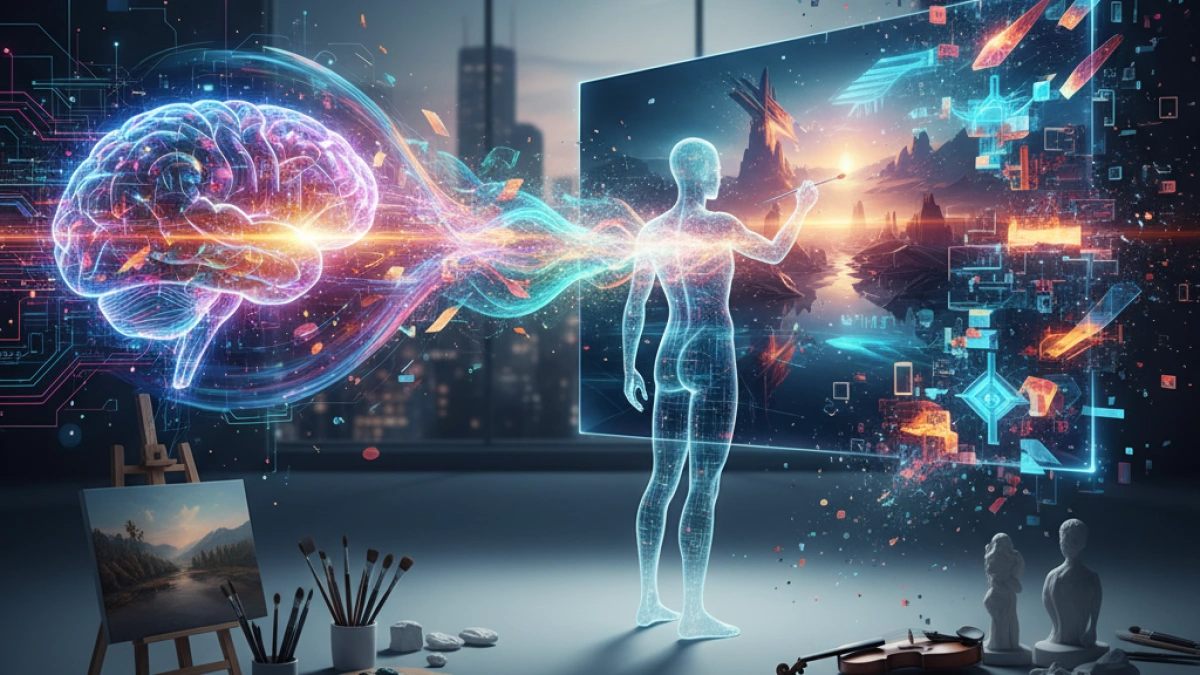In an increasingly technology-influenced world, artificial intelligence (AI) is revolutionizing various fields of knowledge. A recent study indicates that by 2025, AI will surpass human creativity in key aspects, challenging our perception of art, music, and innovation. This advancement raises questions about the nature of creativity and the future of creative professions.
Advances in Artificial Intelligence
Researchers have been working hard on developing algorithms that can generate creative content, ranging from artworks to musical compositions and screenplay writing. Artificial intelligence has demonstrated its ability to learn from vast amounts of data and artistic styles, allowing it to emulate and, in some cases, surpass human creation.
One area where AI has shown surprising results is in image creation. Algorithms like DALL-E and Midjourney have gained attention for their ability to generate images from textual descriptions. These tools, which use deep neural networks, continue to improve in quality and originality, suggesting that the results obtained in the future will be even more impressive.
Implications for Creative Sectors
The surpassing of human creativity by AI will impact various industries. In graphic design, artists may face growing competition from machines. Companies could turn to these tools for designs at a lower cost and in less time.
On the other hand, in music, programs are being developed that can compose original pieces in different genres. This raises the possibility that producers will use algorithms to create background music for films or advertisements, potentially displacing human composers in some areas of the sector.
Is Human Creativity at Risk?
As AI continues to advance, the question arises of whether human creativity will be endangered. Some experts point out that while AI can generate content, it lacks the human experience that brings stories and emotions to life. Creative decisions are often influenced by culture, personal experiences, and subjectivity—factors that AI has yet to fully replicate.
However, this debate will intensify as technology continues to evolve. It is anticipated that by 2025, the creative sphere will be significantly transformed, and it will be crucial for professionals to adapt to these changes by incorporating artificial intelligence into their creative processes in a collaborative manner.
The Need for Adaptation
The advancement of AI in the realm of creativity also brings the need for new skills. Professionals from various fields will need to familiarize themselves with artificial intelligence tools to integrate them efficiently into their work. This adaptation will not only allow them to leverage the benefits of technology but will also help preserve the human place in the creative realm.
The combination of artificial intelligence and human creativity could result in new forms of artistic expression, but it will be essential for creatives to find their voice in an increasingly automated environment.
Conclusion
The prediction that artificial intelligence will surpass human creativity in 2025 is set to generate a deep debate about the future of creative work. As the landscape evolves, it will be essential to stay informed and adapt to new technologies.
For those interested in further exploring these themes and other advancements in technology, I invite you to read more news of this kind on my blog.




















